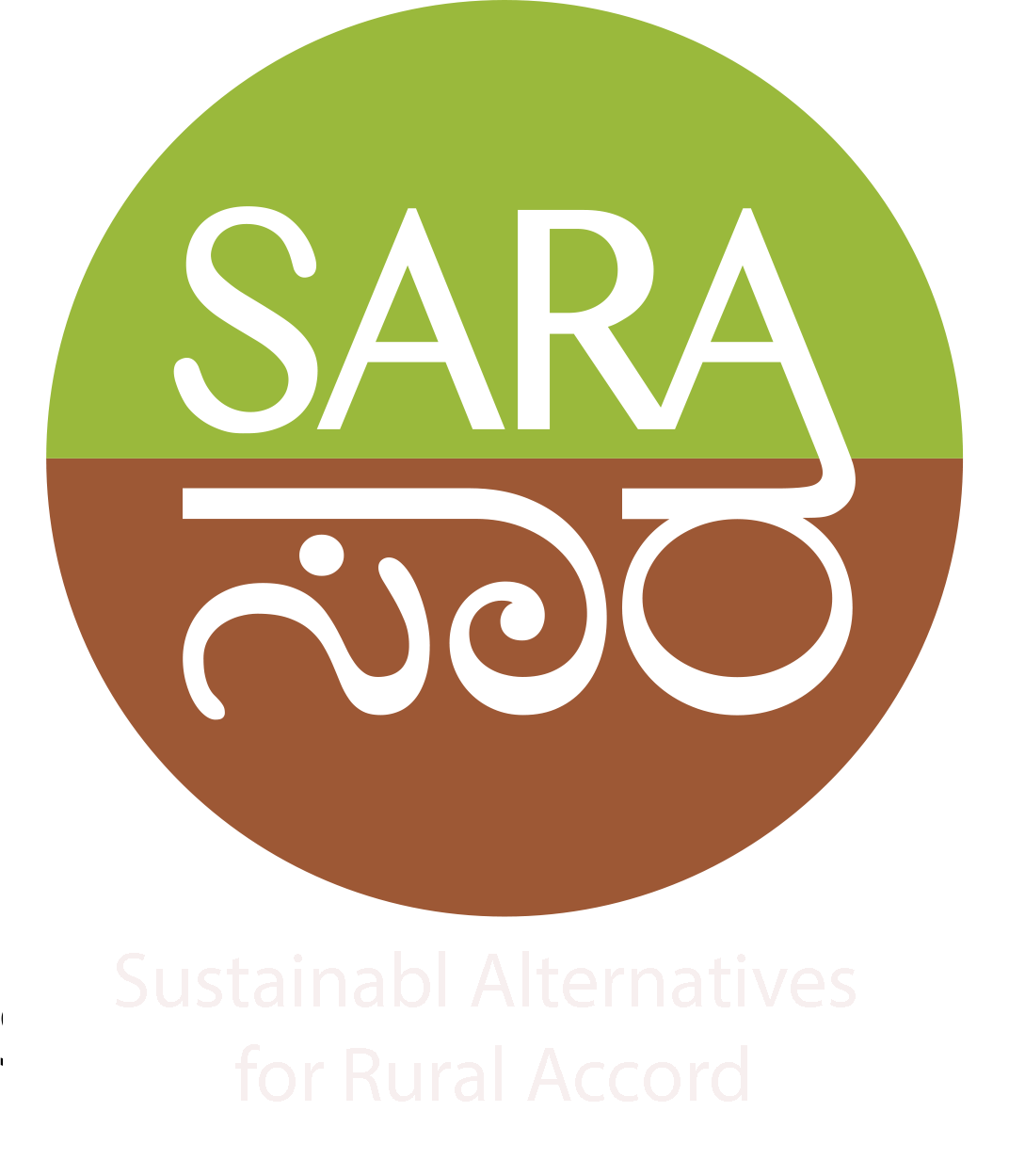Cause Area
Primary Sectors
Secondary Sectors
Geographies Served
Programs
-
Eco-Walk Programme
District
Shimoga
States
Karnataka
SARA Centre organised an Eco Walk programme that covered a 90 km stretch, involving around 10,000 school children from 60 schools and the local community through 40 local organisations. The walk spanned 50 villages and towns and aimed to raise awareness about environmental issues in the Western Ghats region.
-
Swagrama, Lake Rejuvenation Programs
District
Shimoga
States
Karnataka
SARA Centre is a part of the SWA-GRAMA community development programme, inspired by Mahatma Gandhi's 'Village Swaraj' initiative, which aims to revive the economic, social, environmental, and cultural well-being of four villages in the Hosanagara taluka region of Karnataka. Through a range of initiatives promoting sustainable living practices and the revival of art, craft, and other economic resources.
-
Convergence an Artist Residency Programme
District
Shimoga
States
Karnataka
In partnership with Secure Giving Institution, SARA Centre organised an artist residency workshop at its premises. The workshop aimed to bring together traditional and modern artists from across India to share their art-making process and interact with local school children. 18 artists and one guest artist participated in the workshop, which was witnessed by numerous local audiences.
-
Lake Rejuvenation Programme
District
Shimoga
States
Karnataka
The Western Ghats, a vital biodiversity hotspot, are facing ecological imbalances due to deforestation, declining water retention, and the breakdown of traditional water management systems. Borewells have replaced lakes as the primary water source, leading to groundwater depletion and increased vulnerability for farming communities.
Reviving traditional lake ecosystems is essential, as they recharge groundwater, regulate local climates, and support biodiversity. The SARA Centre’s lake restoration efforts have led to significant improvements in water security and community well-being in the Shivamogga district.
Looking ahead, enhanced agricultural production and the integration of aquatic culture into these restored lakes can improve local livelihoods while reducing pressure on fragile forests. Promoting water literacy and ecological awareness will foster long-term community stewardship. This project aims to restore balance, resilience, and hope to a stressed landscape.
-
Living Roots, Lasting Futures: Learning from Our Local Ecology (ongoing program)
District
Shimoga
States
Karnataka
Living Roots, Lasting Futures: Learning from Our Local Ecology
At the SARA Centre, our Local Ecology Module is designed to connect students and community members to the living roots of our ecosystem—soils, rocks, water, forests, biodiversity, and the cultural knowledge interwoven with them. These lessons, unique to our region, are often missing from standard education yet are vital to understanding how to care for and sustain our environment.
In partnership with the District Institute of Education and Training (DIET), we host immersive experiences where students explore regenerated forests, traditional seed banks, endemic plant nurseries, and sustainable water systems. They return to their schools with practical insights to energise their eco-clubs and inspire their peers.
At a time when rural communities face the lure of urban migration, this program nurtures place-based knowledge, pride, and stewardship—empowering the next generation to protect and sustain the lifelines that secure our collective future.
Registration Details
-
PAN Card
AAQTS4180B
-
Registration Number
HNR-4-00053-2014-15
-
CSR Form 1
CSR00041064
-
80G
AAQTS4180BF20228
-
12A
AAQTS4180BE20212
-
FCRA
Not Available
About
-
Headquarters
Shimoga, Haryana
-
Since
2014
Impact
The Centre fosters knowledge exchange on sustainability and environmental impact through art, education, and practical learning to support the local agrarian community.
Vision and Mission
SARA's vision is to nurture community-driven dialogues on the impacts of post-industrialization on the region's forest-dependent agricultural habitats and address conservation, sustainability, and environmental challenges.
Political & Religious Declarations
-
Political Affiliation
-
Religious Affiliation
Location
-
Offices in Cities
Other Details
-
Type
Non-profit
-
Sub Type
Trust
Website
Technology Adoption
-
SOC 2 Compliant
No
-
Financial Management
-
Beneficiary Management



